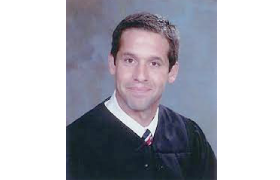The ABA Jnl reports
Based on federal sentencing guidelines, people found guilty of trafficking large amounts of cocaine usually face lengthy sentences. However, a Texas defendant received what many say is an unusual punishment: five days in prison with credit for time served and direction from the judge to complete her JD.
Chelsea Nichole Madill was accused of trafficking 28.5 kilos of cocaine in a 2018 criminal complaint. She was charged in the U.S. District Court for the Southern District of Texas, and in 2019, Madill pleaded guilty to possession with intent to distribute a Schedule II drug.
Federal sentencing experts say the average penalty for that crime is around five years. In addition to the law school piece and no prison time, Madill was sentenced to three years of supervised release. The 2023 sentencing judgment was written by Southern District of Texas Chief Judge Randy Crane.
Much of the record is sealed, and whether Madill attended or completed law school is not disclosed. There is someone with that name listed as a 2L Florida A&M University College of Law student bar association board member. A 2019 order authorized travel expenses for Madill, directing the U.S. marshal to obtain the cheapest means of noncustodial transportation possible between her Florida residence and the McAllen, Texas, courthouse.
“The court would suggest that the least expensive means would be via bus and not by airplane,” the judge wrote.
Madill did not respond to an ABA Journal interview request sent through LinkedIn, and her phone number listed in court records was disconnected. FAMU Law also did not respond to ABA Journal interview requests.
She could have had what is known as “the girlfriend problem,” says Douglas A. Berman, an Ohio State University Moritz College of Law professor. The term refers to long sentences for women who may not be actively involved in “serious drug dealing” but participate in trafficking to preserve a relationship with a boyfriend or husband, Berman says.
“Maybe the judge thought requiring pursuit of a law degree would reduce the likelihood she’d get involved with the wrong folks,” says Berman, who writes the Sentencing Law and Policy blog.
He adds that rehabilitation should be a goal in sentencing.
“The threat of serious confinement often gets people behaving well. She may have been extra motivated to be the best version of herself while this was pending,” Berman says.
Or it could have been the judge ensuring Madill would keep her word.
“Given the sparseness of the record, my first instinct was, the judge doesn’t want to be snookered by the argument of ‘I’m going to go to law school, so give me a break’ if she’s not going to see it through,” Berman says.
Jesse Salazar, the assistant U.S. attorney assigned to the case, referred an ABA Journal interview request to a public affairs officer. The PAO said the office did not object to the sentence. Richard Gould, a federal public defender, represented Madill. A receptionist at the Southern District of Texas Federal Public Defender’s Office told the ABA Journal Gould does not speak to reporters.
According to Madill’s criminal complaint, in 2018 she was observed directing a tractor trailer to a McAllen, Texas, warehouse. When the vehicle was stopped after leaving the site, U.S. Customs and Border Protection officers, with the assistance of a drug-detecting dog, discovered 28.5 kilos of cocaine, the complaint states.
It also references records that Madill rented the warehouse for her company, Monsters Inc Logistics, contracted GPS tracking services for the vehicle carrying the cocaine and purchased load covers for the truck.
Additionally, according to the complaint, there were records of Madill calling the telephone number of someone identified as the drug trafficking organization’s leader, who she met with in Mexico six days after the drugs were seized.
Also, law enforcements found a vacuum sealer often used to package narcotics at the Texas warehouse, and a cooperating defendant told the government they had worked for Madill as a money courier and cocaine purchaser.
Read full report
https://www.abajournal.com/web/article/order-directs-defendant-to-finish-law-school-could-that-be-a-good-bar-admission-defense


 Cannabis News2 years ago
Cannabis News2 years ago
 One-Hit Wonders2 years ago
One-Hit Wonders2 years ago
 Cannabis 1012 years ago
Cannabis 1012 years ago
 drug testing1 year ago
drug testing1 year ago
 Education2 years ago
Education2 years ago
 Cannabis2 years ago
Cannabis2 years ago
 Marijuana Business Daily2 years ago
Marijuana Business Daily2 years ago
 California2 years ago
California2 years ago















